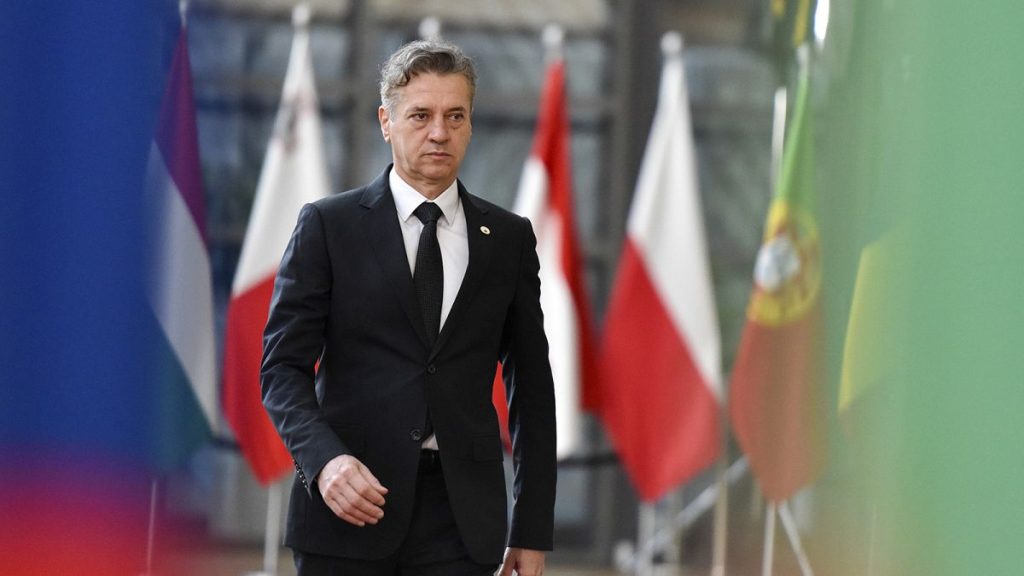Summarize this content to 2000 words in 6 paragraphs in Arabic
The small Alpine country’s parliament must still ratify the decision, but it’s widely seen as a formality, as none of the parliamentary parties in the 90-seat National Assembly are expected to oppose it.
ADVERTISEMENTSlovenia has become the latest European country to recognise Palestine after its government approved Prime Minister Robert Golob’s proposal on Thursday.”The government has made a decision to recognise the State of Palestine as an independent and sovereign state within the borders from 1967, or the borders that the parties involved should agree on in a future peace agreement,” Golob said at a press conference after the government meeting in Ljubljana.Although the question of Palestine’s recognition was not on the government’s agenda on Thursday, Golob said he pushed for a swift decision due to recent developments in Rafah, where Israel conducted several deadly attacks over the past couple of days.However, the prime minister stated that the resolution was not aimed against the state of Israel.”The message of recognition is not directed against anyone,” Golob said, “It is a message of peace. “We believe that today the moment has come when we all — the whole world — must act … in a manner that brings lasting peace in the Middle East.”The small Alpine country’s parliament still has to ratify the decision before it can come into full effect. However, this is considered a mere formality as none of the parliamentary parties in the 90-seat National Assembly are expected to oppose the motion.Slovenian President Nataša Pirc Musar and the Minister of Foreign Affairs Tanja Fajon also supported the decision.”I see no reason for further delays. The war is escalating, there are no negotiations (over) Gaza,” Fajon said before the government’s meeting on Thursday.Who is expected to be next?The path for the recognition and participation of the Palestinian state in international institutions has been challenging, and marred by obstacles.Although recognised by 145 UN member states, Western countries have largely refrained from formalising relations with the Palestinian state. EU countries remain divided on the issue, and some have changed their position dramatically over the years.Following Spain, Ireland, and Norway’s formal recognition of Palestine on Tuesday, Slovenia aimed to announce its recognition alongside other EU member states, with Malta mentioned as one of the potential co-recognisers. However, the Maltese government has since said it would do so “when the circumstances are right”.Other European countries, nominally supportive of the idea, have yet to set a clear date for their decision on the issue. Belgian Foreign Minister Hadja Lahbib said on Monday her country is looking for “a useful recognition” and that it will continue to work for a two-state solution. Luxembourg’s Foreign Minister Xavier Bettel echoed Lahbib’s words, saying that Luxembourg “will do it” but prefers to “wait a bit more”.On Tuesday, the Danish parliament rejected a bill on the recognition proposed by four left-wing parties. MPs who opposed the motion cited a lack of preconditions for doing so.
rewrite this title in Arabic Slovenian government recognises Palestinian state pending parliament approval
مقالات ذات صلة
مال واعمال
مواضيع رائجة
النشرة البريدية
اشترك للحصول على اخر الأخبار لحظة بلحظة الى بريدك الإلكتروني.
© 2025 جلوب تايم لاين. جميع الحقوق محفوظة.




